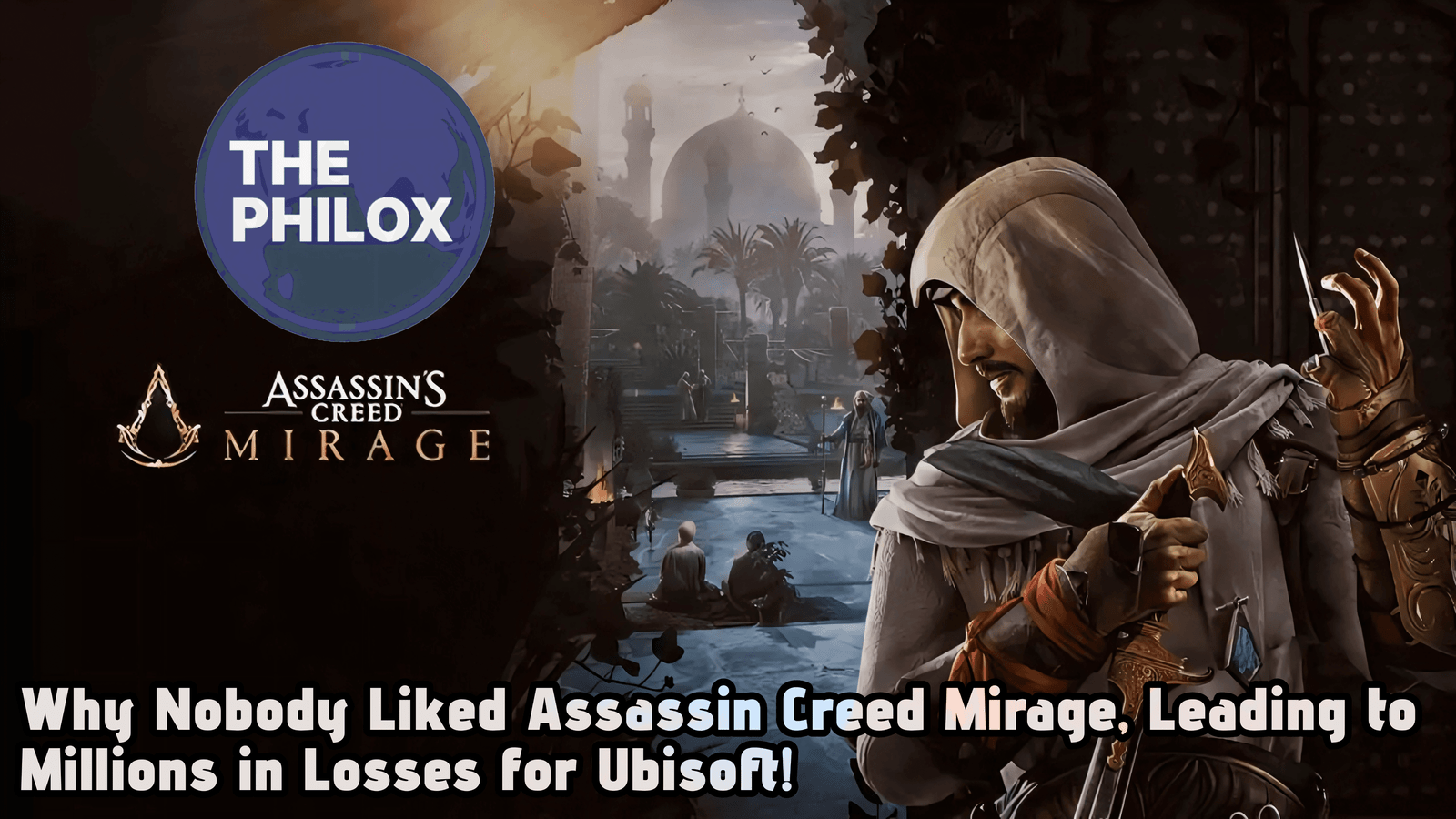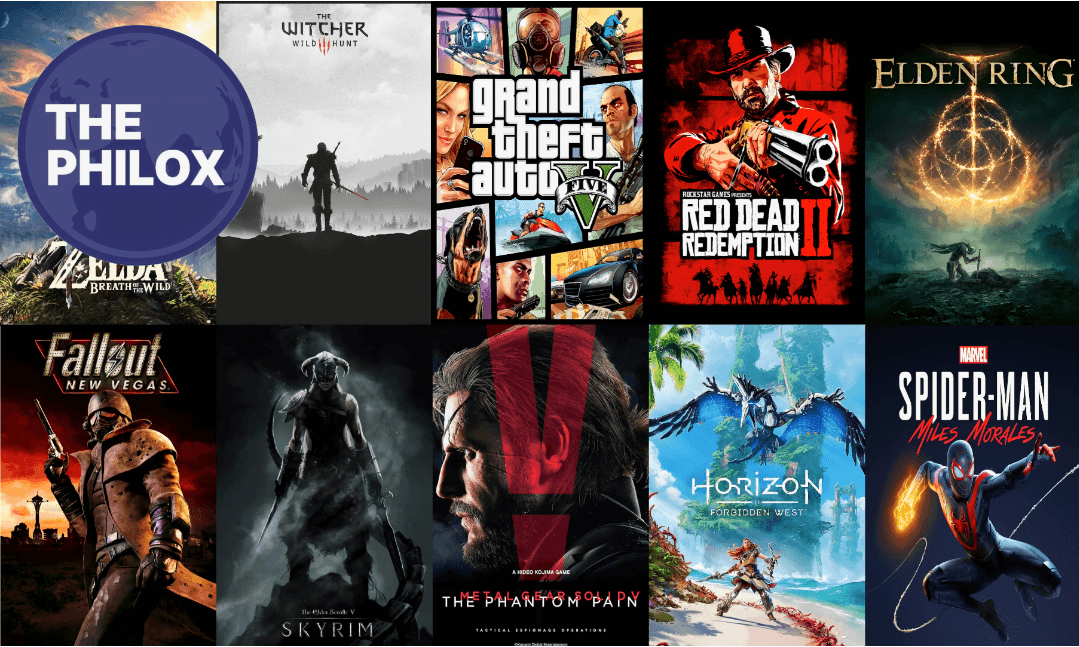Assassin’s Creed Mirage was Ubisoft’s attempt to bring the series back to its roots. Unlike recent titles such as Valhalla, Odyssey, and Origins, which expanded into open-world RPG experiences, Mirage focused on stealth gameplay and a more compact setting.
Set in 9th-century Baghdad, it promised a nostalgic return to classic Assassin’s Creed elements. However, the game received mixed reviews from critics and fans.
While some of the fans found it to be less massive, and more to the point about stealth, the majority felt that this lacked innovation, polish, and depth. Very disappointing and had led to underwhelming reception.
Stealth Mechanics: Nostalgia vs. Outdated Design
The main selling point of Assassin’s Creed Mirage was the focus on stealth gameplay, which was a core element of the earlier games in the series.
However, while the game tried to capture the feeling of stealth-based missions, critics and players found the mechanics outdated. By comparison to modern stealth games like Hitman or The Last of Us Part II, Mirage lacked depth and strategic choices.
Some argued that there was no sophisticated AI or any cutting-edge tools that would have really given some oomph to stealth.
Most of the missions were quite repetitive, including sneaking, hiding, and assassinating, with little room for creative approaches. This made the mechanics feel rough and not really updated to today’s standards even for fans of classic Assassin’s Creed gameplay.
Combat and Parkour: One Step Back
Another significant criticism was the handling of Mirage’s combat and parkover systems. Combat, for instance, which was dumbed down to make a better fit within the simplified scope of the game, was deemed clunky and repetitive by many.
Combat was also reported to be the less fluid iteration of the systems that were visible in the more RPG-focused games like Valhalla or Odyssey.
One such was the traditional series feature of parkour, which too wasn’t great. Movement did appear fluid and dynamic in the older titles, specifically in Unity.
However, those fluidities and dynamics were not felt at all in Mirage. Climbing over the roofs of Baghdad, for instance, was not very fluid at times, say critics, and that didn’t help either.
Weak Story and Blah Characters
Another thing that Assassin’s Creed Mirage was horribly criticized for is its story. The story had followed Basim Ibn Ishaq, one of the characters introduced in Valhalla.
It documented his past and entrance into the Assassin Brotherhood. And again, players and critics found the storyline to be dull with characters too poorly developed.
The overall dearth of connections to the broader Assassin’s Creed mythology was a disappointment to many fans.
The plot, functional as it was, served little purpose in exploring or enriching the richly complex mythology that envelopes the franchise. In this manner, even invested players were left wanting from the lack of consequence or memorable moments.
World Design: Beautiful but Empty
The setting of Mirage was partially well done, as it appealed to many people. The history and visuals that presented the reproduction of 9th-century Baghdad were well appreciated. Developers caught the architectural beauty and cultural richness of the city.
In other words, it was very beautiful to look at but wasn’t very interactive or alive. Players did not feel the city came alive, that few side activities or meaningful content presented were there to explore.
Baghdad felt small and shallow in comparison to the expansive and immersive environments of Valhalla or Origins. This lack of world-building also added to feelings that the game was a step backward for the series.
Sales and Community Feedback
Despite a good launch as Ubisoft’s most successful new-generation title, Assassin’s Creed Mirage did not hold player attention. Sales figures, although commendable at first, did not match the multiyear success enjoyed by previous titles such as Valhalla.
The communities on both Reddit and X (previously known as Twitter) expressed significant discontent. There is a notion that the game was too short in the first place and when put against the price tag it went for.
That further amplified since Mirrage was actually conceptualized as a DLC package for Valhalla, making some feel that it’s a very expensive DLC that packs much more than its actual game.
Some of the fans were mirage, especially from those who have been in the classic Assassin’s Creed formula fandom, but consensus said that the game has not met expectations.
What Ubisoft had initially marketed as “return to form” did little to live it up in terms of the actual product.
It gave an impression to the critics and the players alike that it was forming a big chunk of the sale, but it lacked all possible means of compensation for not having any innovative features and polish that modern gaming demanded.
Assassin’s Creed Mirage was a strong try to redo the magic of the early times in the Assassin’s Creed franchise, but it had disappointed many in this attempt.
Outdated mechanics, poor storytelling, and shallow world-building were some of the major negatives that overshadowed its few strong points, which were its setting and stealth-centric approach.
Poor sales figures may have been disguised, but what came out through reviews of the game indicated that there’s a disconnection between what the people at Ubisoft envision and the expectations of its customers.
This left the fans with the nostalgic value of what the previous games offered and at the same time called for innovation in current gaming.
This will only be determined if they do so with subsequent titles, but currently, Mirage marks a polarizing title in the Assassin’s Creed franchise.
Stay Connected and Share Your Stories
For all those inspired by stories of resilience and ambition, follow us on X/Twitter and on Instagram . For those with untold stories that you would love to share, please send them to contact@thephilox.com





One thought on “Why Nobody Liked Assassin Creed Mirage, Leading to Millions in Losses for Ubisoft”